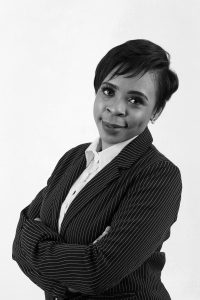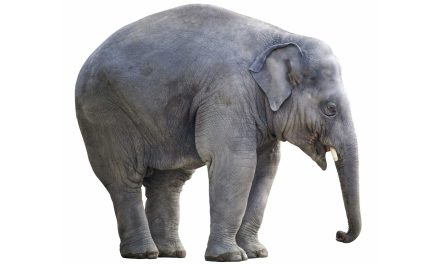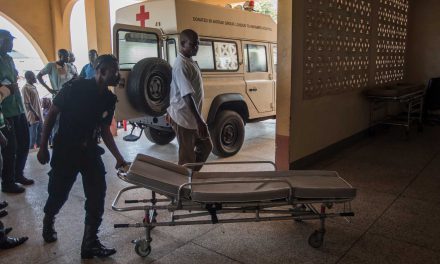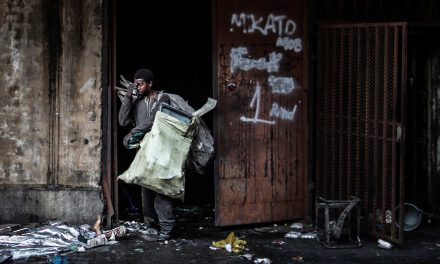Systematic and systemic marginalisation and the exclusion of any segment of a population in the democracy-building processes undermine the fundamental architecture of democracy. Aspiration Six of the African Union’s Agenda 2063 calls for “an Africa whose development is people-driven, relying on the potential of African people, especially its women and youth, and caring for children.”
Likewise, the United Nations 2030 Agenda for Sustainable Development, adopted by world leaders in 2015, embodies a roadmap that makes achieving gender equality and women’s empowerment integral to each of its 17 goals. Good and inclusive governance is essential for Africa’s sustainable development, summed up by a 2020 Foresight Africa Report, which notes: “Without good and inclusive governance Africa will not achieve its social and economic targets.”
Gender equality and inclusion are imperative in democracy building. Inclusive and accountable democracies are only possible if marginalised people are included and take their place in the governance process.
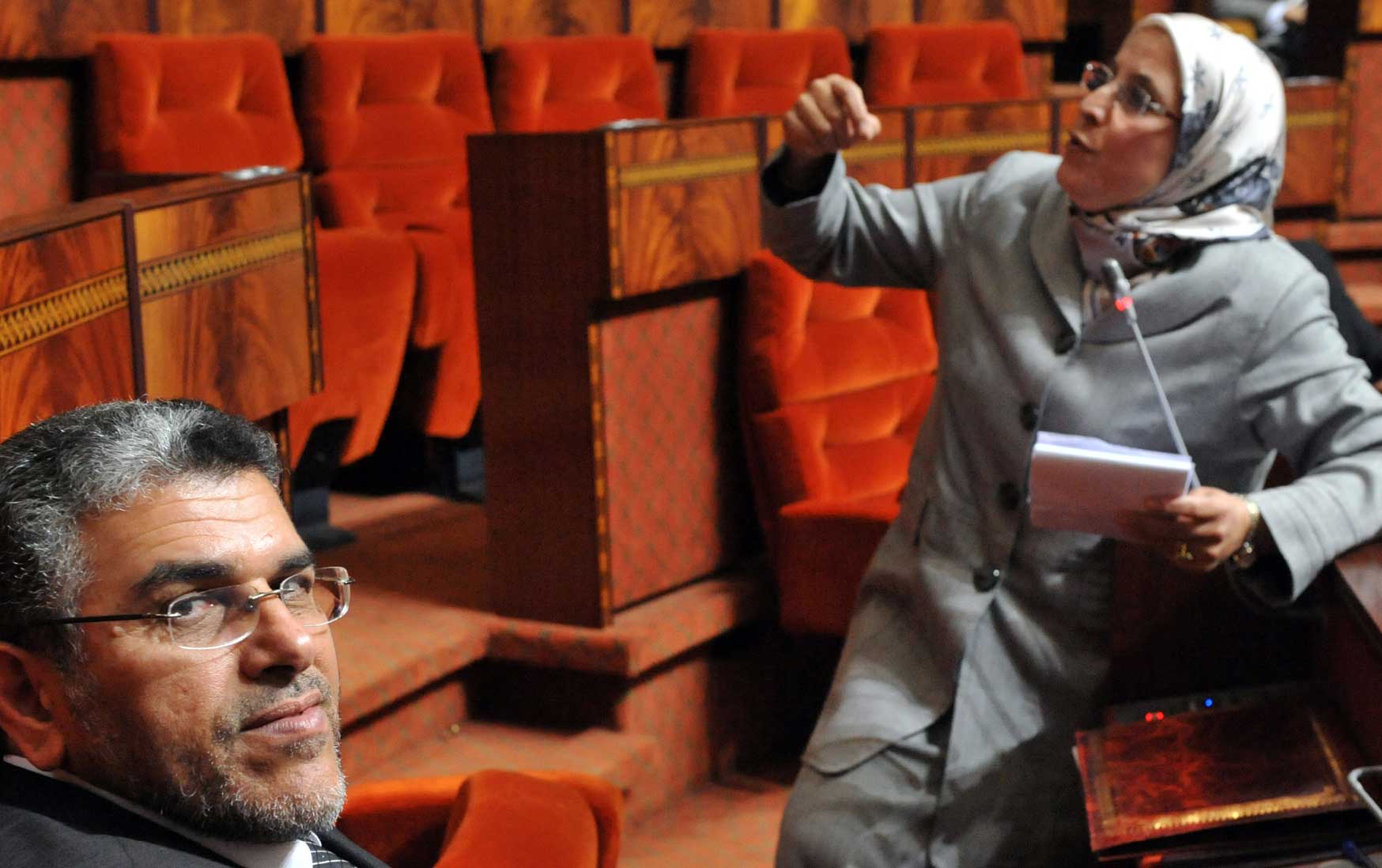
Morocco’s former Solidarity, Women and Family minister, Bassima Hakkaoui, with then Justice minister, Mustafa Ramid, during a 2012 debate arguing against a law that allowed rapists to marry under-age victims to avoid prosecution. (Photo: Abdelhak Senna / AFP)
Women’s equal participation and leadership in political and public affairs are essential to achieving the Sustainable Development Goals by 2030. However, data shows that women are underrepresented at most levels of decision-making worldwide, and that achieving gender parity politically and economically is still far off. As the United Nations has reported, only 13 countries worldwide had a woman head of state as of September 2022, while 15 countries had a woman head of government. Regional variations, meanwhile, noted that women’s representation in local governments (municipalities) in sub-Saharan Africa made up 25% of the total as of January 2022, while the figure stood at 18% for northern Africa.
Progress in gender equality in some countries has been notable. Sub-Saharan Africa has made progress in improving women’s representation in government with the share of women in parliament increasing significantly (more than doubled) over the past two decades. According to World Bank data, the proportion of seats held by women in national parliaments in sub-Saharan Africa was 12% in 2000, 19% in 2010, and 25% in 2020. The African countries leading in this regard are Rwanda, with 61%, South Africa with 47%, and Namibia with 44% of seats held by women. Conversely, the countries with the least proportion in 2021 were Nigeria (4%), Burkina Faso (6%), and Benin (8%) respectively.
So, although there is some evidence of recent improvement, gender parity in parliamentary representation is still far from being realised and without adequate representation at this level, it may be difficult for women to influence policy. A strong and vibrant democracy is possible only when parliament is fully inclusive of the population it represents. Parliaments cannot consider themselves inclusive until they can demonstrate the full participation of women. This is not just about women’s right to equality and their contribution to the conduct of public affairs, but also about using women’s resources and potential to determine political and development priorities that benefit societies and the global community.
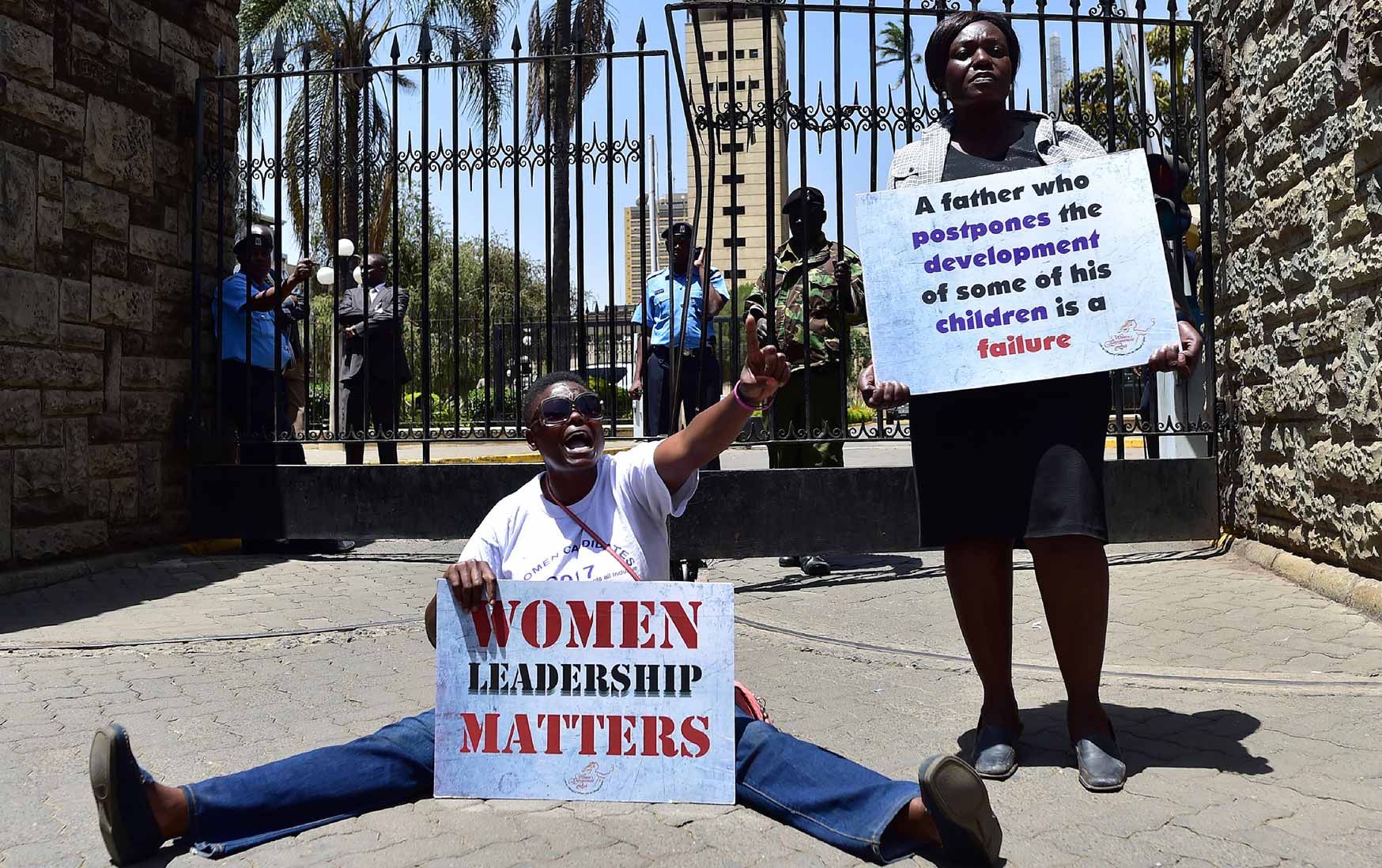
Activists demonstrate outside the parliament in Nairobi in February 2018 to protest against the lack of adequate inclusion of women, youth and the disabled among nominees proposed by Kenyan President Uhuru Kenyatta to his new cabinet. (Photo: Tony Karumba/AFP)
Inequalities filter through to the allocation of resources such as education, health care, nutrition, political voice, productivity, and economic growth. These patterns of inequality begin at an early age, with boys routinely receiving a larger share of education and health spending than girls.
The need to address patterns of exclusion, structural barriers, stereotypes, and unequal power relations that produce and reproduce exclusionary practices in societies is a democratic imperative that cannot be overemphasised. The gender gap is also apparent in African labour markets.
In many low-income countries, women often work on farms or in other family establishments without pay, while others work in or near their homes, mixing work and family activities during the day. In Africa, 75-90% of non-agricultural employment is informal and low-paid work in which women are more likely to be employed as contributing family workers (often unpaid and vulnerable to exploitation) than their male counterparts.
Gender-based income inequality is another factor that mitigates inclusivity. According to the World Bank, globally men earn on average 15% to 30% more than women. According to the International Labour Organization, in sub-Saharan Africa, the median monthly income of men is more than twice that of women, and a study on the potential of female entrepreneurship in Africa showed that the incomes of female entrepreneurs are, on average, only two-thirds that of male entrepreneurs.
Article 3 of the Protocol on Amendments to the Constitutive Act of the African Union (AU) recognises the critical role of women in promoting inclusive development and calls for the AU “to ensure the effective participation of women in decision-making, particularly in the political, economic and socio-cultural areas”.
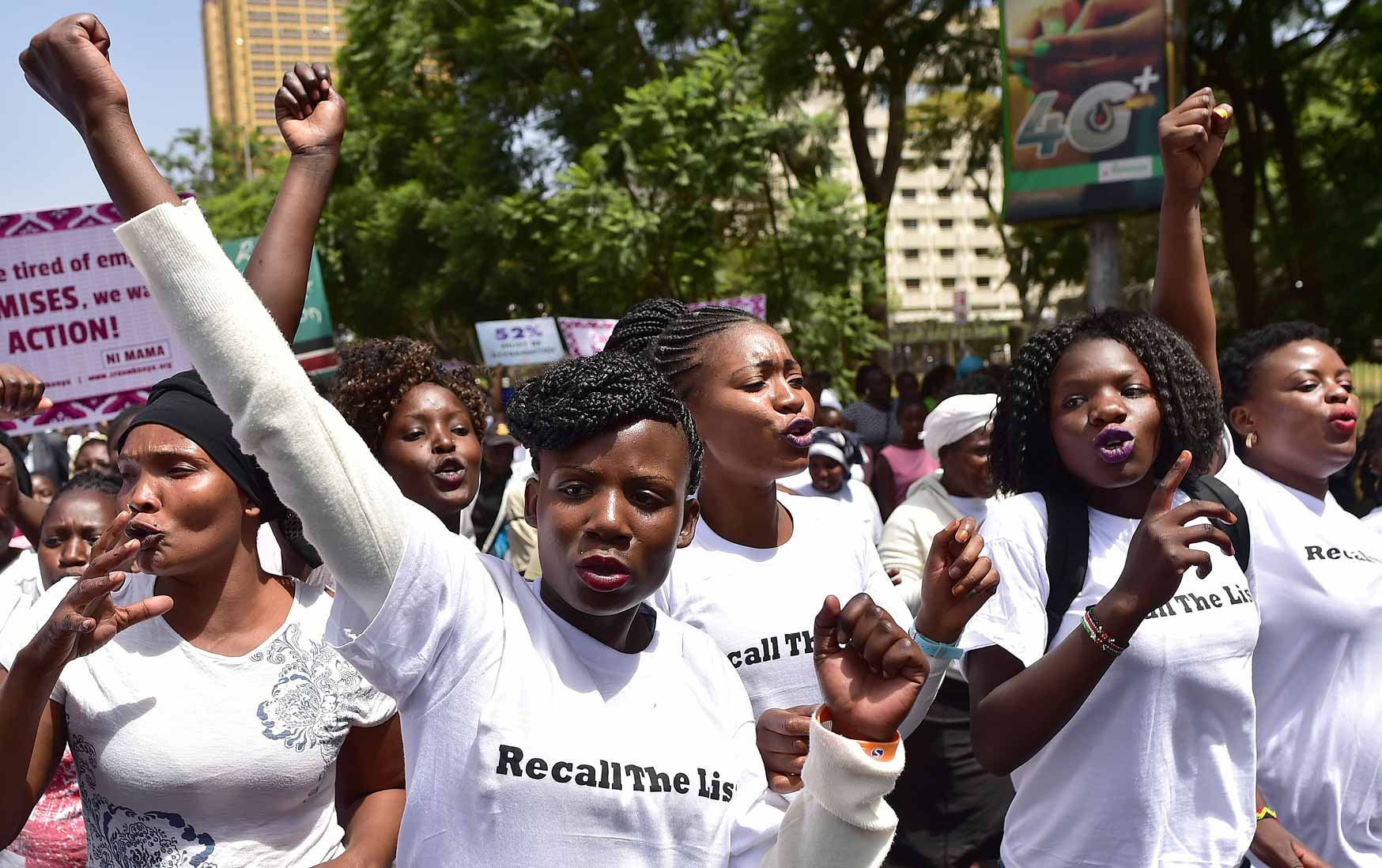
Demonstrators outside the parliament in Nairobi protest against President Uhuru Kenyatta’s “unconstitutional” composition of his new Cabinet, in February 2018. (Photo: Tony Karumba/AFP)
The AU strategy on Gender Equality and Women’s Empowerment (GEWE) 2018-2028, which was launched during an AU summit in February 2019, is based on an inclusive and multi-sectoral approach, building on the lessons learnt from its 2009 gender policy (the 2009 AU gender policy, which provided the policy framework on GEWE). The AU’s strategy for GEWE is to ensure the inclusion of women in Africa’s development agenda and focuses on the following four pillars:
Pillar One focuses on maximising opportunities, outcomes and e-tech dividends. It recognises, amongst others, that for women to be economically empowered, and to be able to effectively contribute to sustainable development, they must have access to quality education and control over productive resources. The GEWE strategy proposes to mount a continental campaign to declare illiteracy a harmful traditional practice and make “out-of-school” a punishable offence, and to advocate for, and lobby, e-tech firms and financial institutions to fund start-ups and innovation hubs that promote gendered solutions and increase women and girls’ equal and effective participation in the technology space.
Pillar Two focuses on dignity, security, and resilience, recognising that the rights of women and girls to dignity, security and bodily and psychological integrity are often compromised when they are subjected to violence and violations, which often happen in the context of violence against women and harmful traditional practices such as early-child marriage and female genital mutilation. The GEWE strategy proposes to implement AU guidelines on ending violence against women and girls (VAWG) and to fund national projects to penalise VAWG.
Pillar Three highlights the need for effective laws, policies and institutions. Whereas Africa has made progress in progressive laws, policies and institutions to promote and protect women’s rights, there is still a huge deficit when it comes to effective implementation, and gender machinery remains among the weakest public institutions at a time when they are needed the most to push the gender agenda forward.
Pillar Four focuses on leadership, voice and visibility. This pillar recognises that for women to have a voice, they need to be equally represented in all areas of decision-making and be able to participate with impact, by removing all forms of barriers. The strategy proposes to integrate gender in the rewriting of the African narrative.
The AU’s Charter on Human and Peoples’ Rights on the Rights of Women in Africa requires states to combat all forms of discrimination against women through appropriate legislative measures. The Women, Gender and Youth Directorate (WGDD) is responsible for leading, coordinating and advocating for AU efforts to achieve gender equality, promote women’s empowerment and ensure African countries live up to the AU’s Solemn Declaration on Gender Equality in Africa (SDGEA).
It is palpable that the frameworks and policies required to close the gender gap in Africa are present, but African governments must put more effort into their effective implementation, ensuring that they are properly disseminated at national, provincial and local levels of government, while monitoring private and public sector compliance. The former AUC chairperson, Nkosazana Dlamini-Zuma, once said, “If we don’t put women in [the] history books, they get edited out of history”. It is the responsibility of every head of state to bear that in mind in working towards good and inclusive governance.
Chrissy Dube is the Chairperson of the GGA Management Committee and also a member of the GGA Executive Committee. She is Head of Governance Insights and Analytics at Good Governance Africa. She completed her Master of Commerce Degree at the University of KwaZulu-Natal in 2013. She also has qualifications in Advanced Project Management, Data Analysis, Ethics, and Compliance. With her experience in interrogating data, Chrissy specialises in analysing and interpreting data for informed decision-making in both the private and public sectors. Chrissy is a registered member of the Institute of Risk Management South Africa. Her interests include monitoring economic and social developments.

